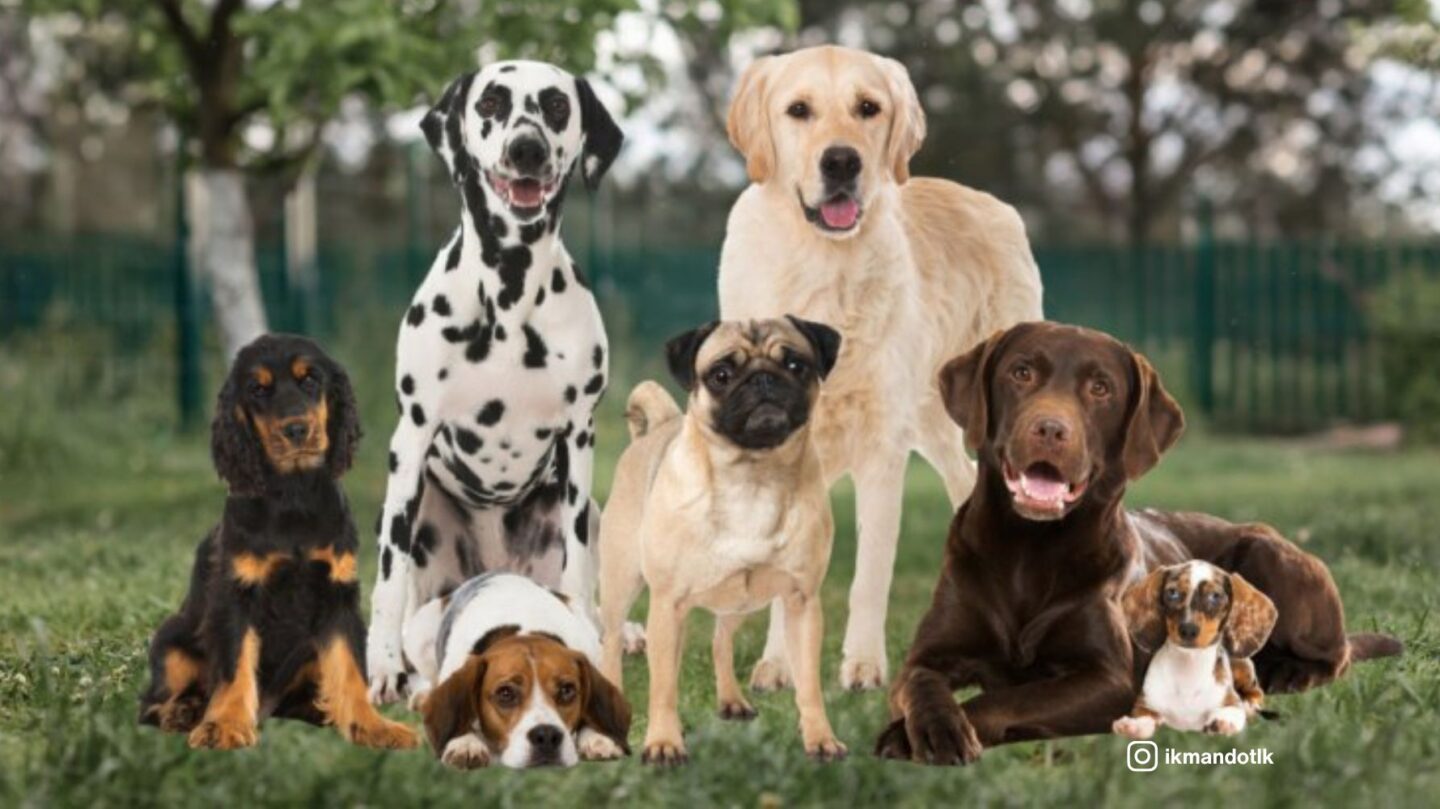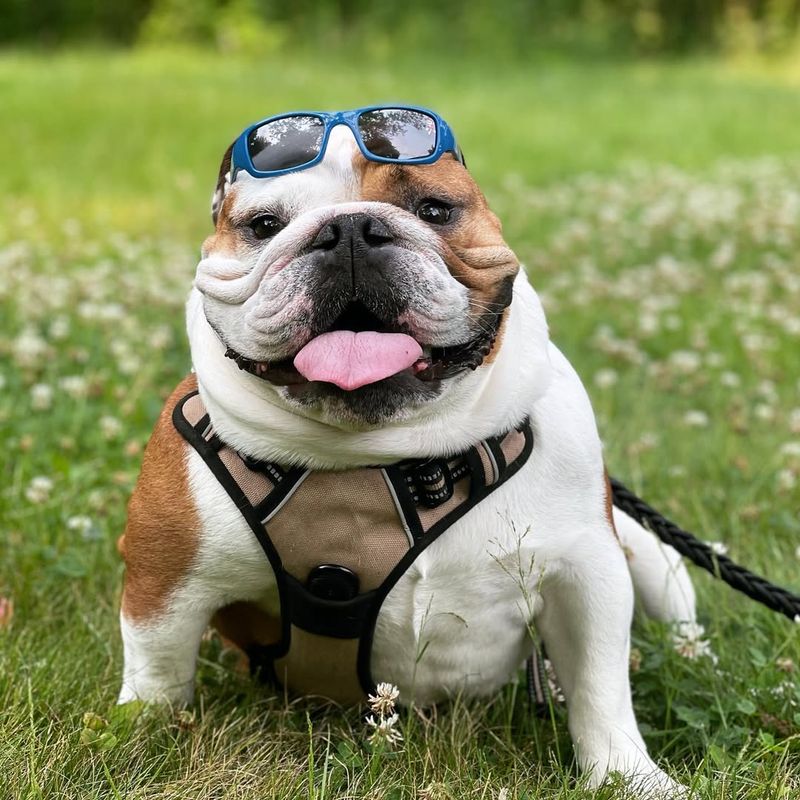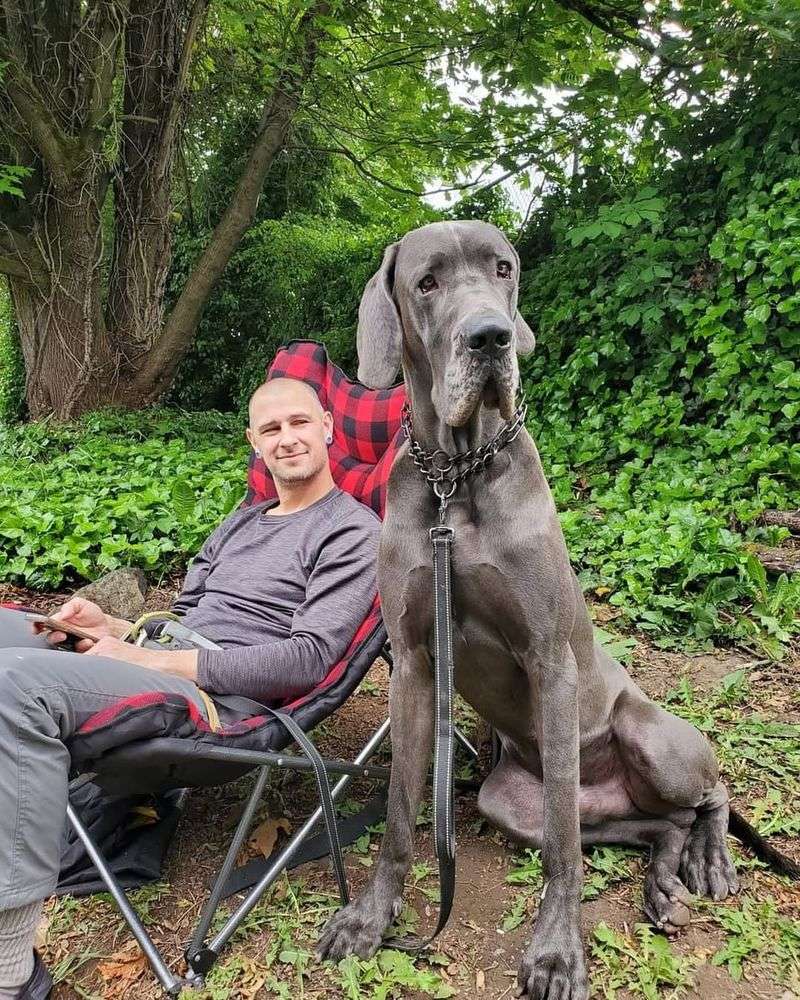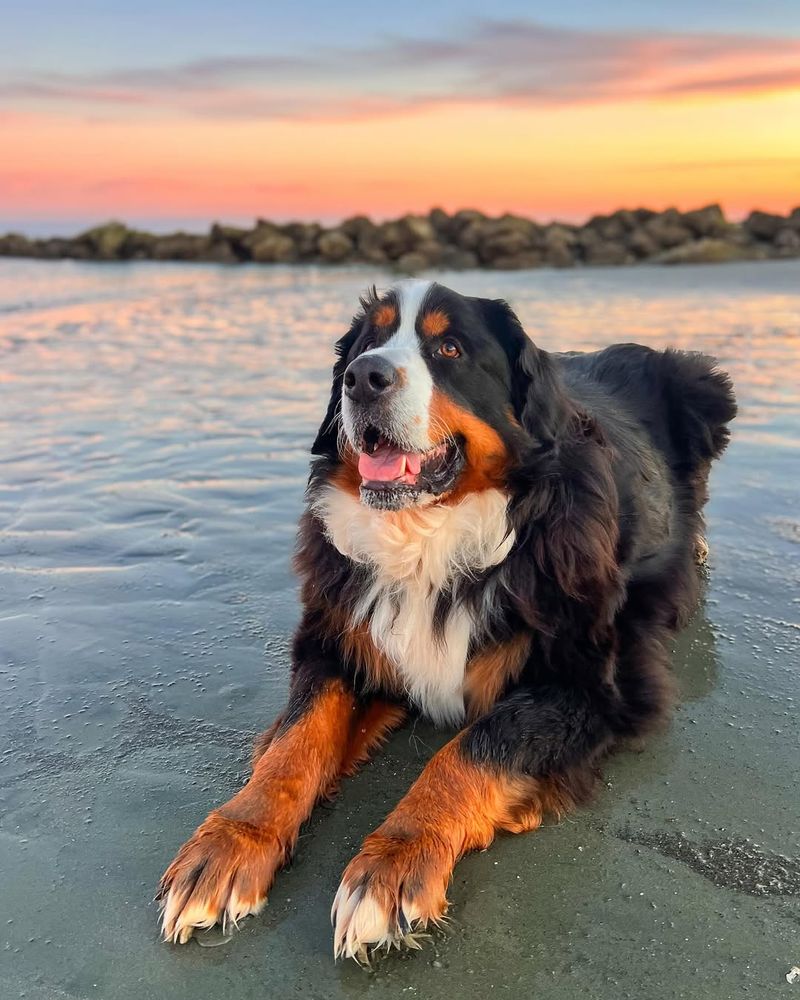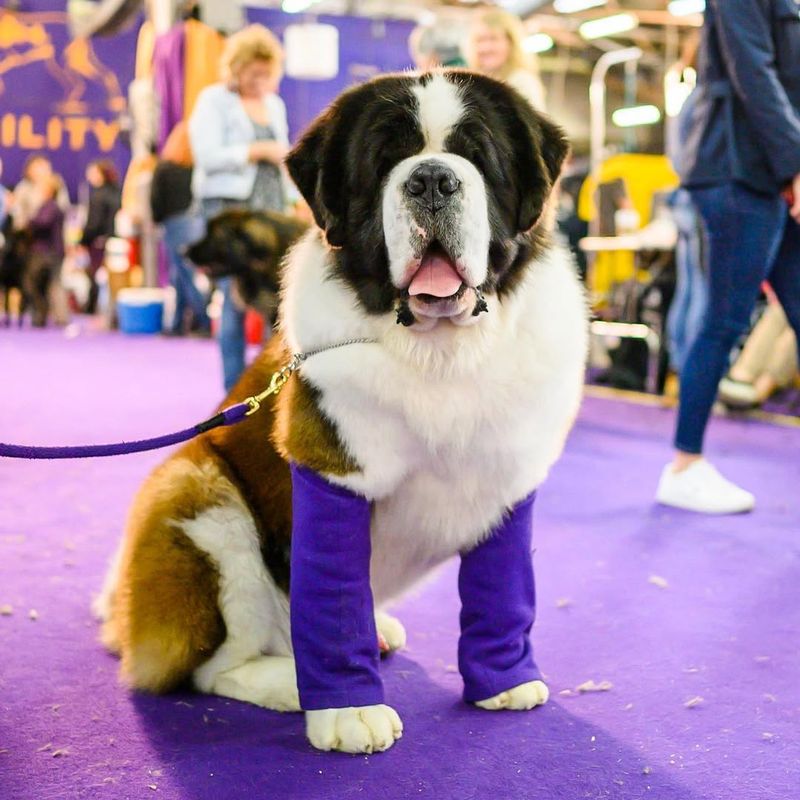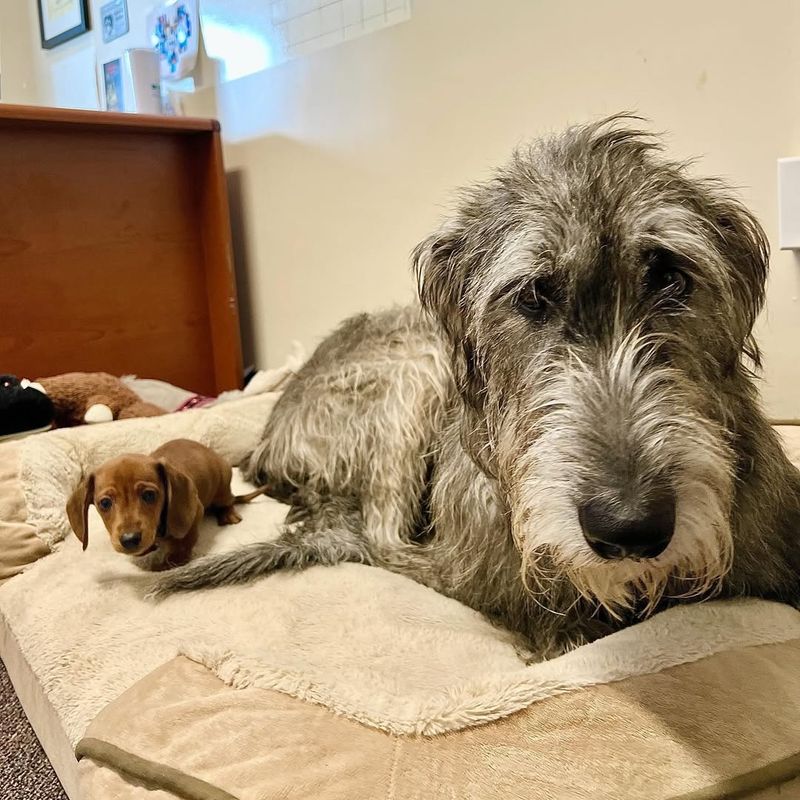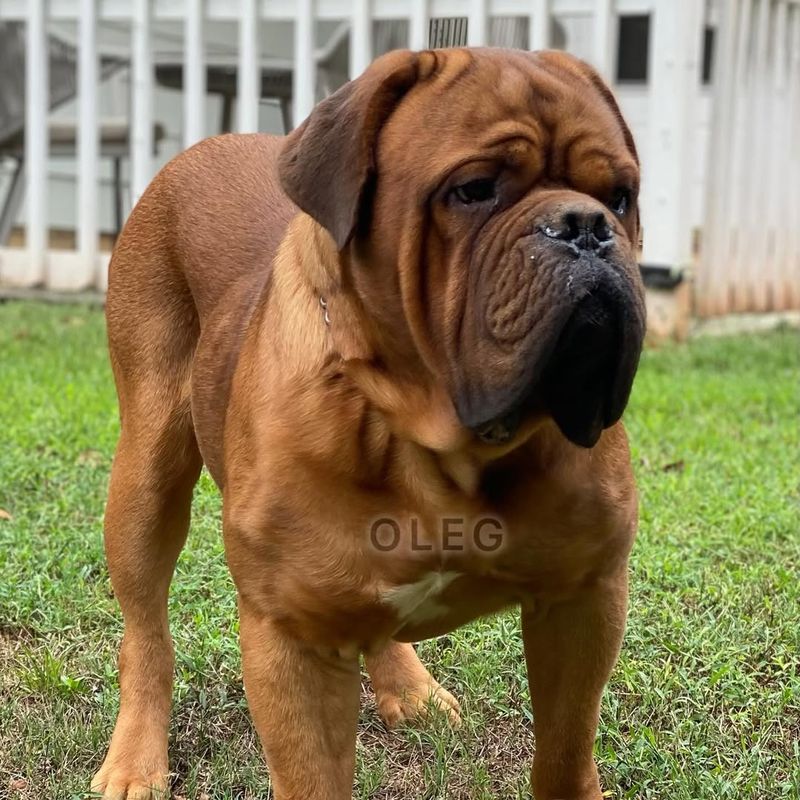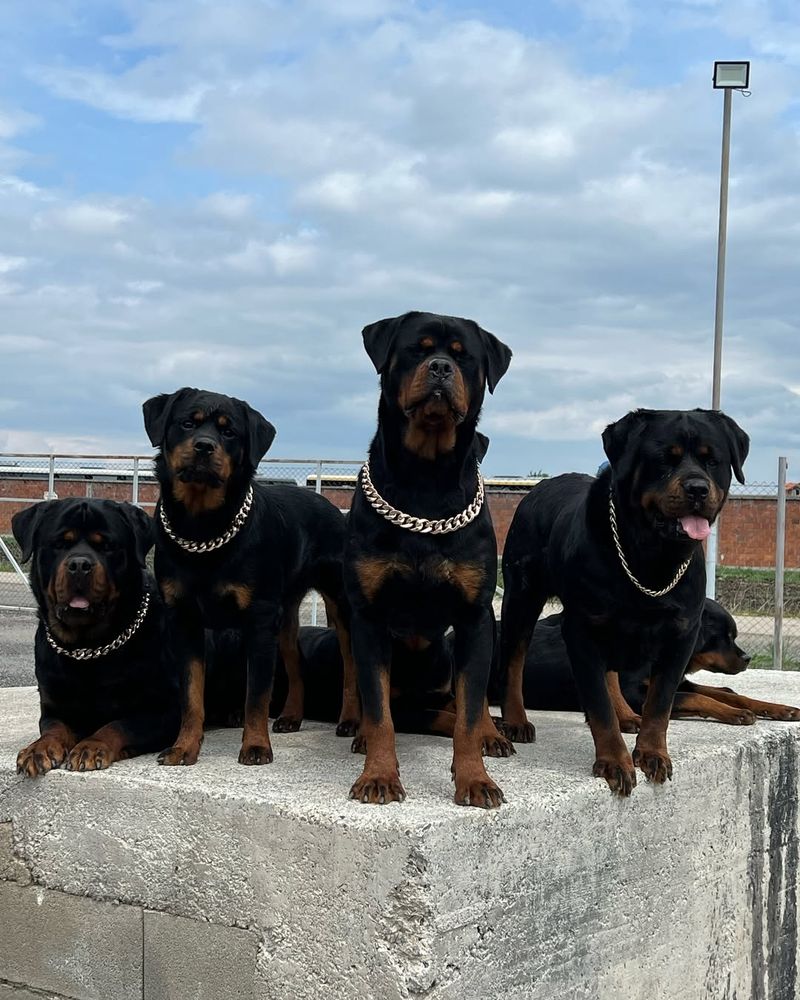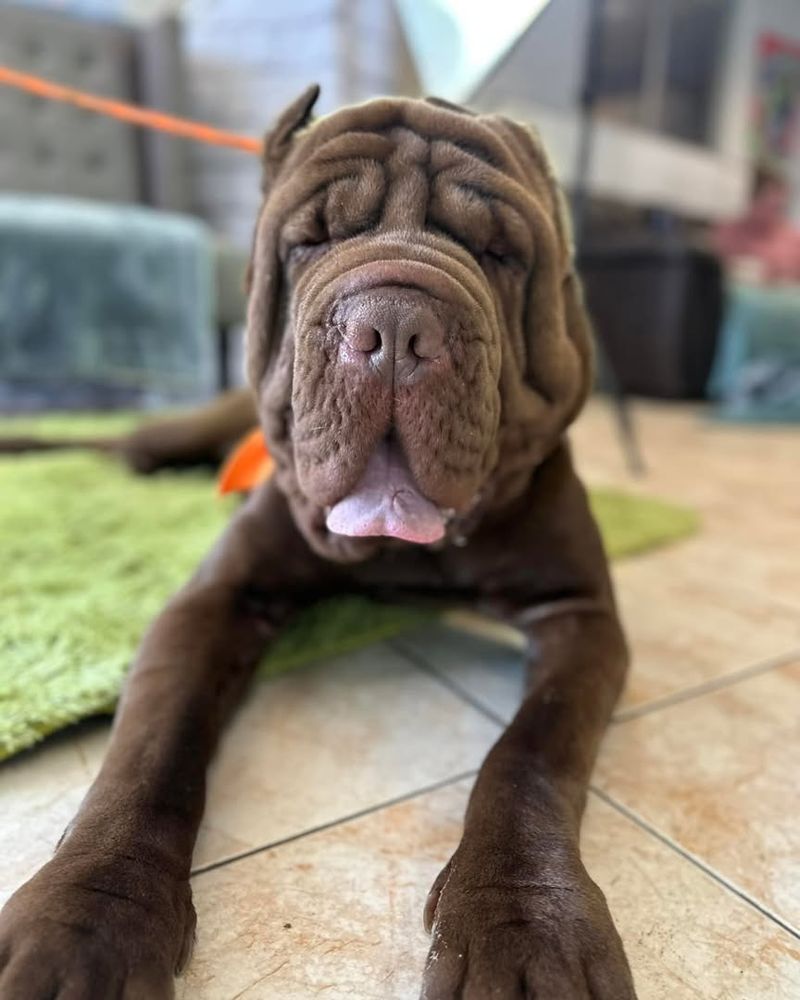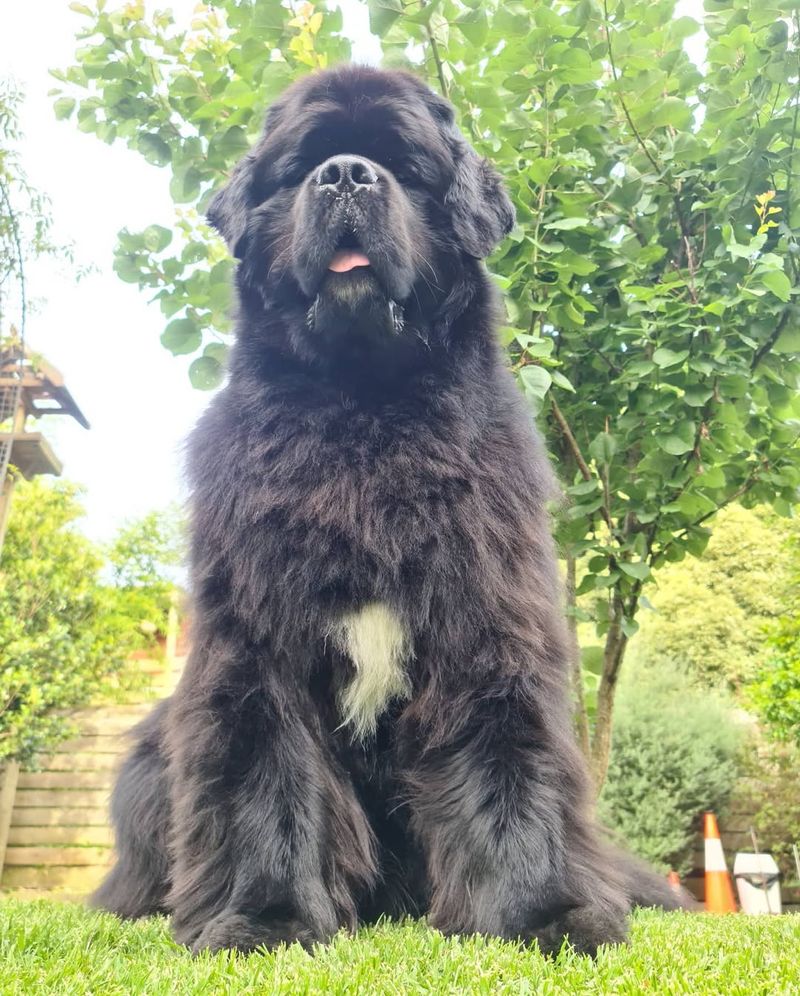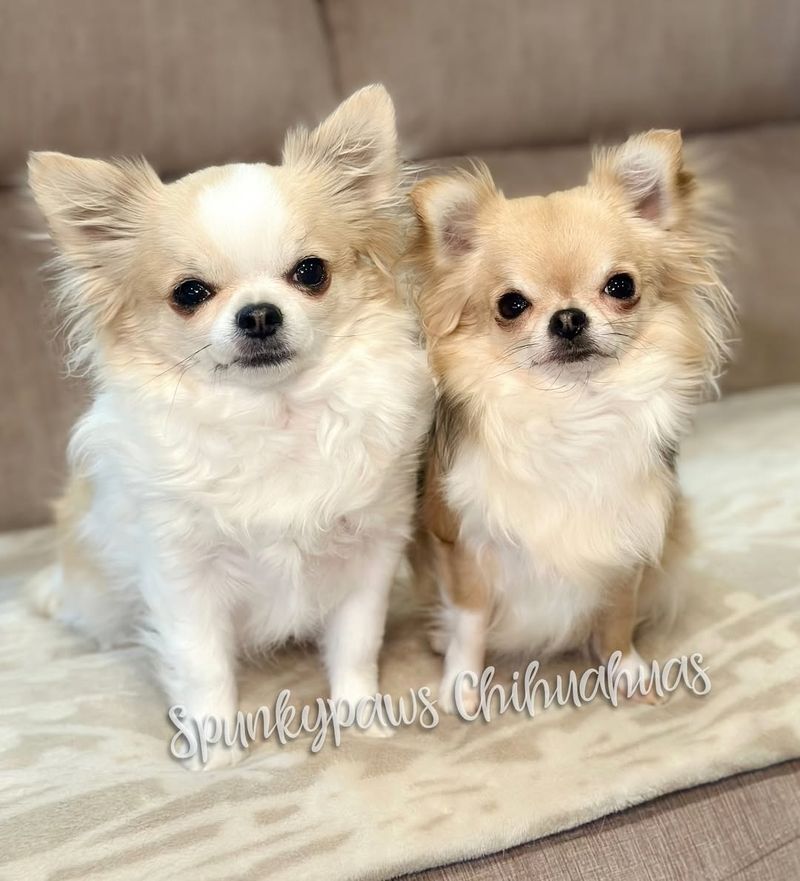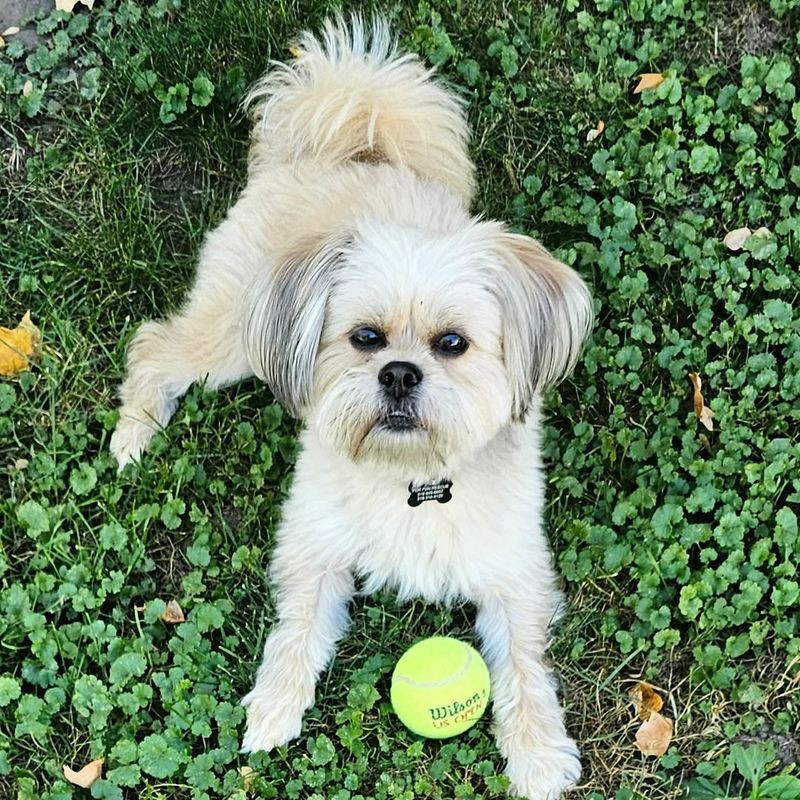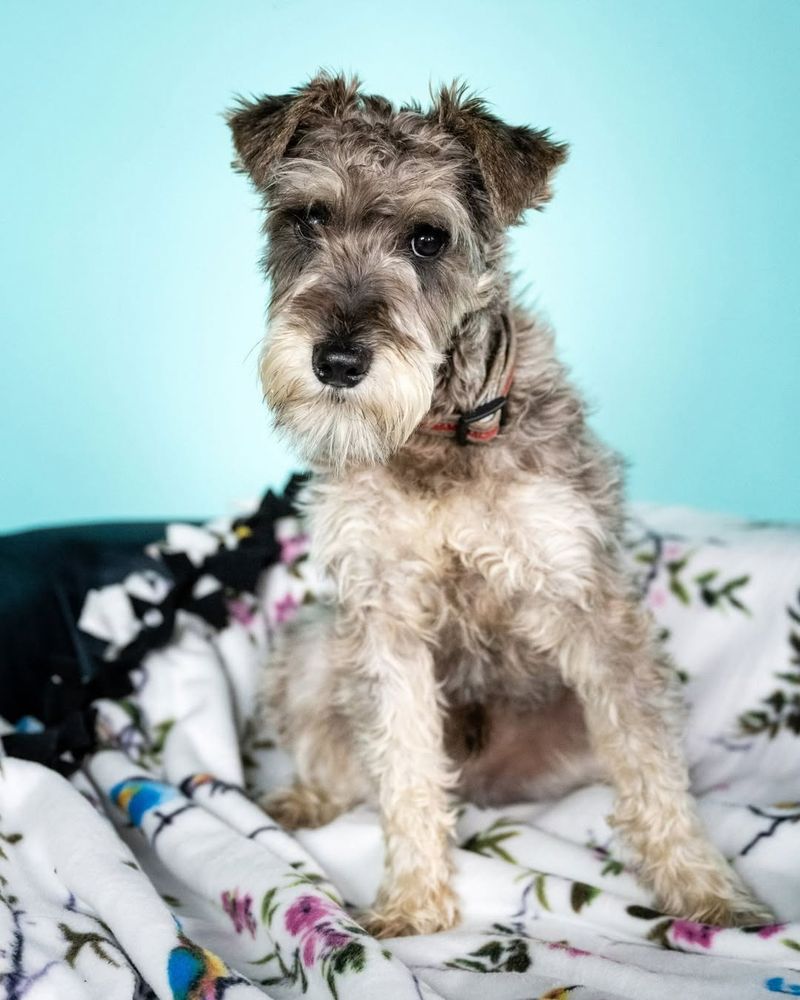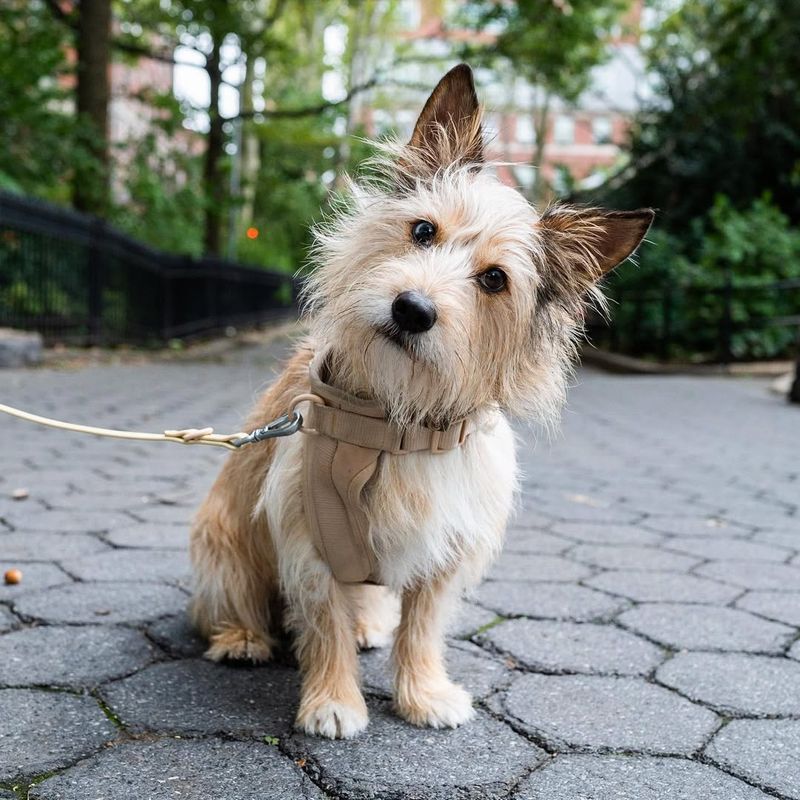When considering a new furry friend, it’s important to understand the typical lifespan of different dog breeds. Some breeds are known for their longevity, bringing joy to families for many years, while others may have shorter life spans that require special attention and care. In this post, we will explore two dog breeds – one known for a shorter lifespan and another celebrated for its longevity.
Bulldog
The Bulldog, known for its lovable and gentle nature, typically lives around 8-10 years. Their iconic wrinkled face and muscular, stocky build make them instantly recognizable. Bulldogs tend to be calm and friendly, making them excellent companions for families and individuals alike.
These dogs are prone to certain health issues, particularly related to their respiratory system. Their characteristic short snout can lead to breathing difficulties, especially in hot weather. Regular vet check-ups and a careful eye on their weight can help manage these concerns.
Bulldogs are wonderful pets, albeit with a shorter lifespan, requiring dedicated care.
Great Dane
Great Danes, often referred to as gentle giants, have a lifespan of about 7-10 years. Their impressive size and gentle demeanor make them a beloved choice for those with ample space. These dogs are incredibly affectionate and good with children, despite their massive stature.
However, their large size predisposes them to health issues like hip dysplasia and heart disease. Regular exercise and a balanced diet are crucial for maintaining their health. Due to their shorter lifespan, potential owners should be prepared for a brief but loving relationship.
Great Danes are loyal companions with big hearts.
Bernese Mountain Dog
Bernese Mountain Dogs, with their striking tri-colored coats, typically live 7-10 years. They are known for their gentle, affectionate nature and are ideal companions for families who cherish outdoor activities. These dogs thrive in colder climates and enjoy an active lifestyle.
Unfortunately, they are prone to various health issues, including hip and elbow dysplasia, and certain cancers, which contribute to their shorter lifespan. Regular vet visits and maintaining a healthy weight can help manage these risks.
Despite their health challenges, Bernese Mountain Dogs bring joy and warmth to any home.
Saint Bernard
Saint Bernards, famous for their roles as rescue dogs in snowy mountains, usually live between 8-10 years. Their gentle demeanor and patience make them excellent family dogs, especially around children. These affectionate giants are known for their loyalty and bravery.
However, their large size means they are prone to certain health issues, such as hip dysplasia and heart problems. Adequate space, regular exercise, and a nutritious diet are essential for their well-being.
Though their lifespan is relatively short, Saint Bernards provide unwavering companionship and love.
Irish Wolfhound
Irish Wolfhounds, known for their impressive height and gentle nature, generally live 6-8 years. As one of the tallest dog breeds, they have a commanding presence but are incredibly friendly and calm. These dogs are ideal for families with space to accommodate their size.
Their short lifespan is due to a range of health conditions, including heart problems and bone cancer. Regular veterinary care and a balanced diet can help mitigate some health issues.
Despite their brief lifespans, Irish Wolfhounds offer a loving and serene companionship.
Boxer
Boxers, with their boundless energy and playful nature, live around 9-10 years. These dogs are loyal, intelligent, and great with children, making them popular family pets. Their expressive faces and muscular builds are defining characteristics.
Health concerns such as heart conditions and cancer contribute to their shorter lifespan. Regular exercise and a healthy diet are key to maintaining their overall well-being. Boxers thrive on attention and require owners who can match their energetic lifestyles.
With proper care, Boxers enrich family life with their spirited presence and unwavering loyalty.
Dogue de Bordeaux
The Dogue de Bordeaux, known for its powerful build and distinctive wrinkled face, typically has a lifespan of 5-8 years. These dogs are deeply affectionate and form strong bonds with their families. Despite their intimidating appearance, they are gentle and loving.
They are prone to several health issues, including heart disease and breathing difficulties. A balanced diet and regular veterinary check-ups are essential for managing their health. Owners should be prepared for a dog that thrives on companionship.
The Dogue de Bordeaux, though short-lived, brings immense love and loyalty into its owner’s life.
Rottweiler
Rottweilers, known for their strength and loyalty, usually live about 8-10 years. These robust dogs are protective and often serve as excellent guard dogs. They require consistent training and socialization to harness their protective instincts positively.
Health concerns like hip dysplasia and certain cancers can affect their lifespan. Regular health check-ups and an active lifestyle are vital for their well-being. Rottweilers are affectionate and thrive with families that can provide firm and loving guidance.
While their time may be limited, Rottweilers offer unwavering protection and companionship.
Neapolitan Mastiff
Neapolitan Mastiffs, known for their massive size and loose, wrinkled skin, generally live 7-9 years. Despite their imposing appearance, they are gentle giants who are deeply loyal to their families. These dogs are known for their protective nature and calm demeanor.
Health issues such as hip dysplasia and heart disease contribute to their shorter lifespan. Maintaining a healthy weight and providing regular veterinary care can help manage these issues.
Neapolitan Mastiffs may have a limited lifespan, but they offer steadfast love and protection.
Newfoundland
Newfoundlands, famous for their swimming prowess and gentle temperament, typically live 8-10 years. These large, fluffy dogs are excellent with children and are often referred to as ‘nanny dogs.’ Their water-resistant coats and webbed feet make them natural swimmers.
They are prone to health issues, including hip dysplasia and heart conditions, which can affect their lifespan. Regular exercise and a nutritious diet are essential for maintaining their health. Newfoundlands are ideal for active families who enjoy outdoor adventures.
Though their time may be briefer, they leave a lasting impact with their affectionate nature.
Chihuahua
Chihuahuas are tiny dogs with a huge personality. Known for their longevity, these pint-sized companions can live well into their late teens. Due to their small size, they require minimal space and thrive in both apartments and houses.
Their playful and alert nature makes them excellent watchdogs, despite their diminutive stature. It’s important to provide them with regular exercise to maintain their health and prevent obesity, which can impact their lifespan.
Socialization is key to ensure they remain friendly and confident around other dogs and people. These little dogs are truly heartwarmers.
Dachshund
Dachshunds are known for their distinctive shape and joyful disposition. These energetic dogs can often live up to 15 years or more. Their long bodies and short legs give them a unique appearance that’s both charming and practical.
Regular exercise is crucial, as is monitoring their weight to avoid back problems. They make wonderful family pets, thriving on attention and affection.
Dachshunds are curious by nature and love to explore, so engaging them with interactive toys can provide both mental and physical stimulation. Their loyalty and longevity make them beloved companions.
Shih Tzu
Shih Tzus are regal and gentle, often living into their teens, making them one of the longest-living breeds. They are affectionate and thrive on companionship, enjoying the company of families and other pets.
Their luxurious coat requires regular grooming, which can be a bonding experience. Despite their appearance, Shih Tzus are robust and enjoy a good play session.
They are adaptable to various living conditions but prefer indoor environments. Socialization from a young age ensures they are well-adjusted to different people and animals. Their endearing nature is irresistible.
Toy Poodle
Toy Poodles are intelligent and lively, with a lifespan that often extends into their late teens. Their curly coats are not just for show; they are hypoallergenic, making them ideal for allergy sufferers.
Training is a joy with these dogs, as they are eager to learn and perform. Regular exercise and mental stimulation are essential to keep them happy and healthy.
Toy Poodles thrive on human interaction and can develop separation anxiety if left alone too long. They excel in canine sports and make wonderful companions for active families who enjoy engaging with their pets.
Lhasa Apso
Lhasa Apsos are small, hardy dogs known for their longevity, often living up to 20 years. Originating from Tibet, they were bred as sentinel dogs for monasteries, which is reflected in their alert nature.
Their long coats require regular grooming to keep them looking their best, and their independent spirit means they enjoy time alone as well as with family.
Lhasas are protective and watchful, making them excellent watchdogs despite their size. They require early socialization to ensure they are well-mannered and friendly. Their loyalty and character make them steadfast companions.
Beagle
Beagles are known for their curiosity and strong sense of smell, often living well into their teens. These friendly and energetic dogs thrive in environments where they can explore.
Originally bred for hunting, they have a robust constitution and require regular exercise to prevent weight gain. Beagles are social and enjoy the company of other dogs and humans alike.
Their playful nature makes them excellent family pets, and they benefit from mental stimulation through games and training. Beagles are affectionate and form strong bonds with their families, rewarding their owners with loyalty and joy.
Miniature Schnauzer
Miniature Schnauzers are spirited dogs with a lifespan that often reaches 15 years or more. These intelligent companions are known for their distinctive beard and eyebrows, which give them a wise appearance.
They are highly adaptable, enjoying both urban and rural settings, as long as they receive daily exercise and mental challenges. Schnauzers are very social and love being part of family activities.
Regular grooming keeps their coat in good condition, and their trainable nature makes them a joy to have around. Their lively character and long life make them beloved pets.
Pomeranian
Pomeranians are small, fluffy dogs with vibrant personalities, often living up to 16 years. Despite their size, they are bold and confident, making them excellent companions.
Their thick coat requires regular grooming, and they thrive on attention and interaction from their families. Pomeranians are intelligent and can learn a variety of tricks, delighting their owners with their antics.
They need regular exercise but are well-suited to apartment living. Socialization is important to ensure they are friendly and well-behaved. Their cheerful disposition and loyalty make them delightful pets.
Australian Terrier
Australian Terriers are small, tough dogs known for their longevity, often reaching 15 years or more. These terriers are full of energy and require regular exercise to channel their spirited nature.
With their rugged coat and alert expression, they are both charming and practical, originally bred for hunting vermin. Australian Terriers are intelligent, enjoying training and mental challenges.
They are adaptable, thriving in various living environments, from city apartments to country homes. Their friendly nature and loyalty make them excellent family pets, and they are always ready for adventure with their human companions.
Jack Russell Terrier
Jack Russell Terriers are energetic dogs with a zest for life, often living well into their teens. These small dogs pack a punch with their intelligence and enthusiasm.
They excel in activities that challenge their minds and bodies, such as agility courses and fetch games. Regular exercise is crucial to prevent boredom, which can lead to mischievous behavior.
Jack Russells are social and love being involved in family activities. They form strong bonds with their owners and are known for their loyalty and affectionate nature. Their vibrant energy brings joy to any household.
